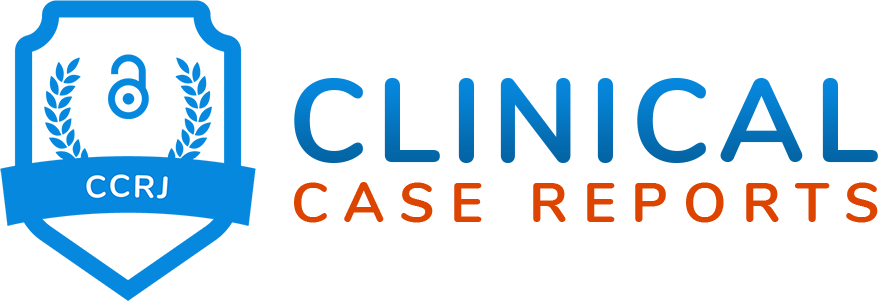Editor Guidelines
The responsibility of an editor is to carry out the peer-review process, ensuring the quality of the research material in compliance with the publisher's policy guidelines.
Editor-in-Chief
- The Editor-in-Chief assists and encourages the board members in journal activities like coining journal standards as per the international open-access journal norms and ensures the quality of manuscripts by monitoring the peer-review process. Encourage editors to submit articles for inaugural and special issues.
- Editor-in-Chief is authorized to make the final decision for any publication-oriented issue.
Editorial board members
- Editors have to volunteer themselves in journal activities and conserve the quality of the Journal with periodical and legitimate suggestions as per international open access norms.
- Once the plagiarism check is completed, the articles will be assigned to relevant Editors based on Editor's research interest. It is anticipated that the assigned Editor will take up the assignment at the earliest possible time.
- If the Editors want to deny the assignment due for any reason, then he or she needs to inform the Editorial Office at the earliest possible convenience.
- The assigned Editor should not have any conflict of interest with the authors or submission. If so, then he or she has to decline the assignment stating the proper reason to the Editorial Office.
- Every Editor must treat each author with proper dignity, courtesy, and acceptable behavior irrespective of considering the matter and fate of the article.
- It is expected that assigned Editorial Board members must judge every submission with honesty and transparency.
- If required, Editor can provide the necessary guidelines and dictate the author's submission process.
- All our Editors must maintain confidentiality regarding any author, reviewer, or article information to anyone.
- The Editor should provide the final judgment on the articles assigned within the allotted time with proper reason and clarification.
- The Editors are responsible for any query regarding reconsideration of editorial decisions, review feedback reports, and determine the recommendations quickly and clearly with good reasons. An editor is responsible for establishing such a protocol.
- It is expected that the assigned Editor responds to the timely notifications from Editorial Office for any updates and information on the assigned manuscript at any stage of the publication process.
- Along with the Editorial office, the in-house Editorial/Reviewer Board members are responsible for the timely publication of the accepted articles.
- For any manuscript, the assigned Editor is responsible for selecting potential reviewers, considering their expertise in particular subject areas, and monitoring the review process.
- The Editor's responsibility is to ensure that the shortlisted reviewers' panel is not entitled to utilize any part of the research provided in the article they are reviewing in any form.
- Editors are responsible for conveying the projecting Journal's expectations to the reviewers about quality, fair and constructive review feedback report within the provided timeline for the assigned submission.
- Editors should validate the timeline required for reviewing articles to reviewers so that the assigned reviewer panel should get the appropriate time to review.
- Suppose a special issue proposal is submitted to the Journal. In that case, the assigned Editorial Board member has to review the proposal for suitability with the scope of the Journal, the timeline for compiling the issue, and the importance of the topic.
- Editorial Board members have to recommend the timely topics and suggest potential guest Editors considering the topic's scope, importance, and timeliness.
- Editors are responsible for coordinating and managing the critical decisions by cooperating with Editorial Office, such as Feedback on issues and published volumes or similar matters.
- Editors are path directors of the Journal and are expected to inform the Editorial Office regarding the potential timely topics and author pool.
- Editors are welcome to provide their periodical creative Feedback to understand the targeted readers and their preferences within the scope of the subject.
- Editors should conform and adhere to the guidelines and protocols provided by the Editorial Office.
Guest Editor
- While maintaining a constant connection with the Editorial Board member and the Editorial Office, the Guest Editor can handle a special issue autonomously.
- Review the special issue proposals relevant to current research in the concerned field.
- Once the EB members have approved a proposal for launching a special issue, these articles will be handled and processed by the corresponding relevant guest editors.
- Demonstrate the significance of the proposed special issue theme, explaining how the special issue will contribute towards advancing the scope of the Journal.
- Recommend potential authors and invite them to contribute suitable articles for the prospective special issue.
- Refer a minimum of 3-5 reviewers for the manuscripts submitted towards the special issue.
- Create a timeline and schedule for the release of special issue articles, including the timeframes for manuscript preparation, review, and final submission.
- Monitor the submission of final edited versions of the contributing articles and all corresponding authors' contact information.
- Include an editorial on the topic of interest written by the guest editor or any contributing author.
Are you interested in submitting your research paper?
Thank you for choosing us. We recommend you to go through our guidelines before submitting the paper.

Clinical Case Reports Journal is the state-of-the-art platform to showcase medical journals across scientific community and a one-stop solution for publishing the manuscripts of varied medical specialities.
Main Links
Useful Links
Our Contacts
Clinical Case Reports Journal,
C/O Infact Publications LLC,
16192 Coastal Highway,
Lewes, Delaware 19958
USA